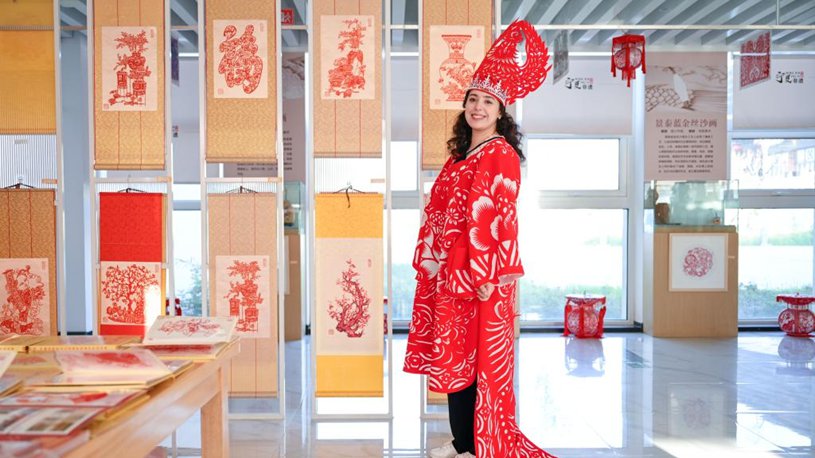CHANGSHA, Aug. 31 (Xinhua) -- At Gaoqiao Grand Market in Changsha, central China's Hunan Province, Liu Yue, manager of a cross-border trading company, introduced nut products to prospective clients.
"We're approaching peak season for nut sales, and inquiries have surged," Liu said.
The nuts Liu mentioned come from Africa, where Liu's company, along with other nut producers in China, has formed strong partnerships that not only address supply shortages but also help position Africa as a vital player in China's growing market.
The company, WENYE (Hunan) International Trade Co., Ltd., based in Hunan's Yongzhou, used to process and sell dried dates and walnuts. But rising demand has led to raw material shortages. "Domestic demand is growing, and Africa has the supply. So, why not partner with Africa?" Liu said.
After extensive research, the company sourced raw materials from Uganda and Kenya and established local processing plants. Nuts are harvested and processed in Africa, then shipped to Hunan for further processing before being distributed.
Despite being separated by thousands of miles, the central Chinese province has drawn closer to Africa through expanding trade ties. China's State Council has approved a general plan to establish a pilot zone for in-depth China-Africa economic and trade cooperation, modeled after the China (Hunan) Pilot Free Trade Zone (FTZ).
According to the plan, China will establish the pilot zone as a platform for opening up to and cooperation with Africa that has a certain level of international influence by 2027.
Sitting in the Yuhua section of the FTZ, Gaoqiao Grand Market has become a growing hub for China-Africa trade. Shoppers can find Ethiopian coffee beans, Kenyan flowers, Egyptian perfumes, and a wide range of African products.
The market also set up an innovation demonstration park and roundtables and matchmaking events are regularly held to connect businesses with government officials and industry experts for guidance on expanding trade.
The market has thrived benefiting from the advantages of the FTZ, market procurement trade pilot programs, and national import trade innovation demonstration zones. These policies have amplified the potential for China-Africa trade.
Looking ahead, Liu said that African nuts will soon reach domestic markets more efficiently. The company's nut processing project in the country's southern island province of Hainan is underway.
A visit to the permanent exhibition hall for the China-Africa Economic and Trade Expo at Gaoqiao Grand Market showcases an array of African culture and products. Spanning 10,000 square meters, the hall serves as a display center for African countries' culture, key industries, and specialty goods.
"Many tea merchants, after seeing our purple tea, are eager to visit our tea plantations in Kenya," said Chen Shuhui, manager of another Hunan-based cross-border commercial company.
Data indicated that in 2023, the China-Africa Economic and Trade Expo's permanent exhibition hall saw on-site sales surpass 2 million yuan (274,000 U.S. dollars), with 37 signed orders for products like purple tea, seafood, and lamb, totaling an intended cooperation value of 43.9 billion yuan. ■










